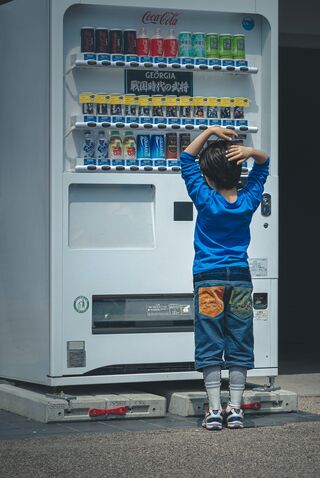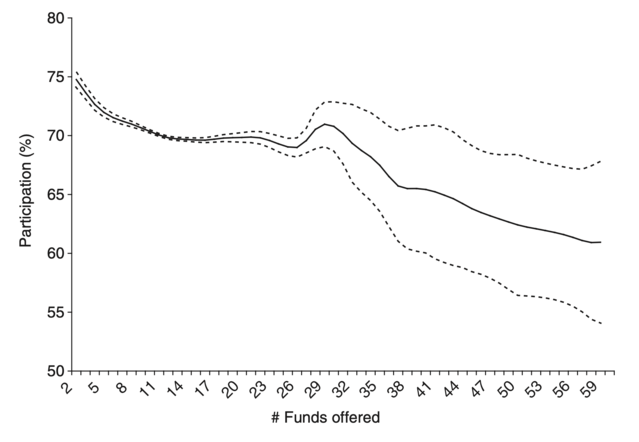Confidence
There's More TV Than Ever, Here's Why That's Bad
Having numerous viewing options is amazing. But they come at a cost.
Posted July 24, 2022 Reviewed by Lybi Ma
Key points
- Having too many options can lead to choice overload, making it more difficult to choose than if there were fewer options.
- A meta-analysis found that choice overload is more common when options are hard to compare or when we don't have strong preferences.
- These features may be present for many people when scrolling through streaming services to find something to watch.
- It is also increasingly difficult to find common ground with others, resulting in the loss of an important cultural touchstone.
According to FX Research, there were 559 adult scripted series on TV and streaming last year, the highest number since they started keeping records in 2002. That’s not even counting all the reality shows or the massive library of content on streaming platforms from shows that didn’t release new episodes in 2021, some of which are all-time classics that you never got around to watching.
In short, there’s too much TV and streaming.

Why more isn’t necessarily better
But more is better, right? Maybe.
While plenty of those 500+ shows are barely worth a mention, TV quality has largely never been better. No matter your tastes, there’s something good out there you’ll like.
But will you be able to find it? And how will you choose between seemingly limitless options?
Psychologists have called this problem choice overload. The basic idea is that when people are inundated with too many options, it actually becomes more difficult to choose than when there are only a few options to pick from.
For example, a 2004 study led by Sheena Sethi-Iyengar analyzed the 401K contributions of around 800,000 employees in 69 different industries who earned between $10,000 and $1 million in 2001. They wanted to know if the number of funds offered in different 401K plans affected the rates at which employees participated in retirement programs.
As shown below, they found a small negative trend: As the number of funds increased, participation rates declined. Perhaps plans with more funds were overwhelming to some people and caused them to put off making a choice indefinitely.

Choosing a TV show isn’t like choosing a mutual fund, right?
Despite results like those in the 401K study, researchers have questioned the reality of choice overload. First, other studies have found opposite results or no effect at all of the number of options. Second, choice overload just doesn’t seem logical: How could giving people more options make it harder for them to find something they want? After all, every day people spend millions on Amazon, a site where you can find 50 different dustpans within seconds.
To try to settle this question, a group of researchers led by Alexander Chernev conducted a meta-analysis (a study of studies) in 2015, combining the results of 99 separate experiments from 53 studies, comprising approximately 7,200 participants.
Overall, they found an average effect of the number of options on making a choice to be statistically no different from zero. But they found that choice overload did appear under some conditions. I’ll focus on two that seem most relevant for picking a TV show.
- The difficulty of the decision: One way a decision can be difficult is if the options vary on multiple dimensions. When you load the home screen on Netflix or HBO Max, you’re presented with lots of options. Even if they’re personalized recommendations, they may be different in lots of ways: TV shows, movies, comedies, dramas, documentaries, new series, and old favorites—it’s not exactly easy to compare them and choose one.
- Uncertain preferences: When people don’t have a lot of expertise in an area, they are more likely to put off deciding when there are many options. If you don’t have strong likes and dislikes or don’t know much about the shows you see on screen, you might find yourself just scrolling aimlessly, or end up watching episodes of The Office for the sixth time.
Whether you personally experience choice overload with TV will probably depend on your susceptibility to factors like these.
But there’s another problem with the massive proliferation of shows that may affect almost all of us.
The end of the water cooler show
How many times have you had a conversation like this one?
“I’ve been enjoying Abbott Elementary. Have you seen it?”
“No, but we just binged The Bear and loved it.”
“What’s that?”
With so many shows catering to so many niche interests, everyone can find something they love, and that’s great. But good luck finding someone who wants to talk about it with you—they’re all watching something else.
Decades ago, when there were far fewer shows on TV, the most popular ones were called “water cooler shows” because nearly everyone watched them and talked about them at work (around the water cooler). The metaphor is pretty out of date, but sadly, so is the concept itself.
When everyone is watching different things at different times, we lose the cultural touchstone that TV used to be.
There’s simply too many shows
More shows can make it harder to find something you like. Once you do, it’s even harder to find someone to share it with.
And be honest: If your favorite streaming service cut the number of new shows next year in half, would you even notice? Or would you start your seventh rewatch of The Office?




